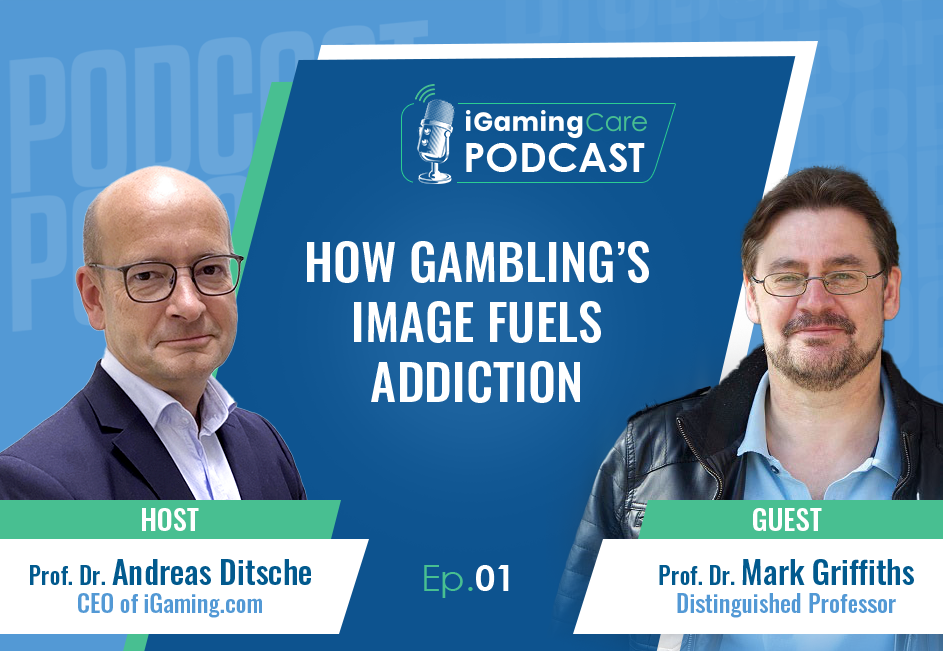
Embracing Safe Gambling: Innovative Measures and Global Efforts to Prevent Addiction

As the online gambling sector continues to expand globally, so does the need for robust gambling addiction prevention measures. With millions engaging in online gambling for entertainment, countries, governments, and communities are rallying to implement innovative strategies aimed at protecting and providing support for players.
In this article, we explore some of the strategies, innovative measures and success stories that are impacting addiction prevention.
The Growth of Gambling and Addiction
According to Statista, global online gambling revenue is expected to reach over US$107 billion in 2025. However, this growth comes with concerns over gambling addiction. The World Health Organization (WHO) estimates that around 1-3% of the global population suffers from gambling addiction, with only 0.14% of gamblers seeking informal and formal help.
| Why Gambling Addiction Prevention Matters? | |
|---|---|
| Preventing Financial Ruin: | Uncontrolled gambling can result in severe financial problems. Preventative measures educate individuals on the financial risks and encourage responsible behavior to avoid devastating consequences. |
| Protecting Mental Health: | Gambling addiction often leads to anxiety, depression, and emotional distress. Preventing addiction helps safeguard mental well-being by providing resources and education to address the psychological triggers associated with gambling. |
| Protecting Vulnerable Groups: | Youth, low-income individuals, and those with pre-existing mental health conditions are at higher risk of gambling addiction. Prevention programs focus on raising awareness and providing targeted support. |
| Promoting Responsible Gambling: | Encouraging awareness and moderation in gambling practices empowers individuals to make informed choices. Prevention programs advocate for responsible gambling habits and self-regulation tools. |
| Strengthening Families and Relationships: | Addiction strains personal relationships, often causing family conflict, breakdowns, or neglect. Prevention efforts foster healthier dynamics by addressing early warning signs and encouraging open dialogue. |
Innovative Strategies and Success Stories
Creating a culture of responsible gambling involves a multi-faceted approach that combines regulation, education, technology, and community involvement. Let’s look at some protection measures and success stories in the fight against gambling addiction from around the globe.
United Kingdom: The Bet Regret Campaign
The UK has been at the forefront of promoting responsible gambling through initiatives like the Bet Regret campaign. Spearheaded by the UK Gambling Commission, this initiative utilizes relatable scenarios to encourage gamblers to self-reflect and adopt safer behaviors. By employing TV and digital advertisements, the campaign has reached millions, making a significant impact on public awareness. Data from the commission indicates a marked increase in public engagement with responsible gambling resources, highlighting the campaign’s effectiveness.
Sweden: Empowering Self-Exclusion with Spelpaus
Sweden has taken a proactive approach by implementing the Spelpaus service, a self-exclusion tool that allows individuals to block themselves from all licensed gambling activities temporarily. This initiative empowers individuals by placing control in their hands, significantly reducing the risk of problem gambling. Reports indicate that since its launch, Spelpaus has seen over 100,000 registrations, showcasing its impact in fostering responsible gambling habits.
Germany: Stricter Regulations and Monitoring
Germany has recently introduced a new Interstate Treaty on Gambling, imposing stricter regulations on advertising and requiring operators to implement tighter monitoring systems. This comprehensive framework aims to create a safer gambling environment. The treaty aligns with global responsible gambling initiatives, making sure vulnerable players receive the necessary support and reinforcing the country’s commitment to addressing gambling addiction.
Canada: PlaySmart Centers
Canada’s PlaySmart Centers, located in casinos, provide instant information and supportive resources for players. These centers focus on educating players about safe online gambling practices and provide tools that can be accessed digitally, like the iGamingCare 2-minute self-assessment test. As a result, surveys have shown a 30% increase in player awareness regarding responsible gambling practices. Since 2019, these centers have received over 500,000 visitors.
United States: Problem Gambling Awareness Month
The National Council on Problem Gambling (NCPG) in the United States is advancing education and awareness through initiatives like Problem Gambling Awareness Month. This annual campaign focuses on educating the public and professionals about prevention, treatment, and recovery services. The campaign’s impact is evident, with a reported 25% increase in calls to gambling helplines during the awareness month, highlighting the growing awareness and need for support services.
“The month-long initiative aims to educate the public about the signs of a gambling problem, encourage open conversations around treatment and recovery resources and foster a supportive environment that empowers individuals struggling with gambling to seek help.”
Keith Whyte, Executive Director of the NCPG
Macau: Community-Based Programs
Macau, famous for its vibrant gambling scene, is taking proactive steps to combat addiction by partnering with local NGOs to implement community-focused initiatives. Through a mix of educational workshops and counseling sessions, these programs strive to combine modern therapeutic methods with traditional support systems. A 2021 study revealed that participants in these programs showed a 30% reduction in risky gambling behaviors.
Singapore: Multi-Faceted Approaches
Singapore’s National Council on Problem Gambling (NCPG) employs a comprehensive strategy, integrating public education campaigns with stringent regulations and providing easily accessible help resources. This multi-faceted approach has been effective, with the NCPG reporting that the overall probable pathological and problem gambling (PPG) rate remains low at around 1.1%.
Australia: BetStop Program
Australia’s BetStop program is a new national self-exclusion register allowing individuals to ban themselves from all licensed online gambling services. Since its introduction in 2023, BetStop has seen a significant uptake, with over 30,000 registrations indicating a strong public interest in self-regulation. Early reports suggest a decrease in gambling-related harm among participants, showcasing its effectiveness in promoting responsible gambling.
South Africa: AI-Driven Tools
In South Africa, gambling operators are partnering with tech companies to create AI-powered tools designed to analyze betting patterns and detect signs of risky behavior at an early stage. By enabling swift interventions, these innovative tools aim to curb gambling issues before they worsen. According to the South African Responsible Gambling Foundation, problem gambling affects around 2.7% of the population.
Kenya: Age Verification Technologies
In Kenya, where the betting industry is rapidly growing, authorities are implementing stringent age verification systems. These systems require users to provide valid identification before participating to comply with legal age restrictions. This proactive approach not only protects young individuals but also promotes responsible gambling practices, setting a benchmark for emerging markets in regulatory innovation and player protection.
Final Thoughts
The global efforts to prevent gambling addiction highlight the power of innovation, regulation, and community collaboration. From self-exclusion tools and AI-driven monitoring to public awareness campaigns and grassroots engagement, these innovative measures collectively pave the way for a safer gambling landscape.
By embracing technology, fostering dialogue, and supporting those in need, operators can champion a global commitment to safe gambling. By working together to protect players, the sector can make sure that gambling remains an enjoyable and controlled activity for all.

